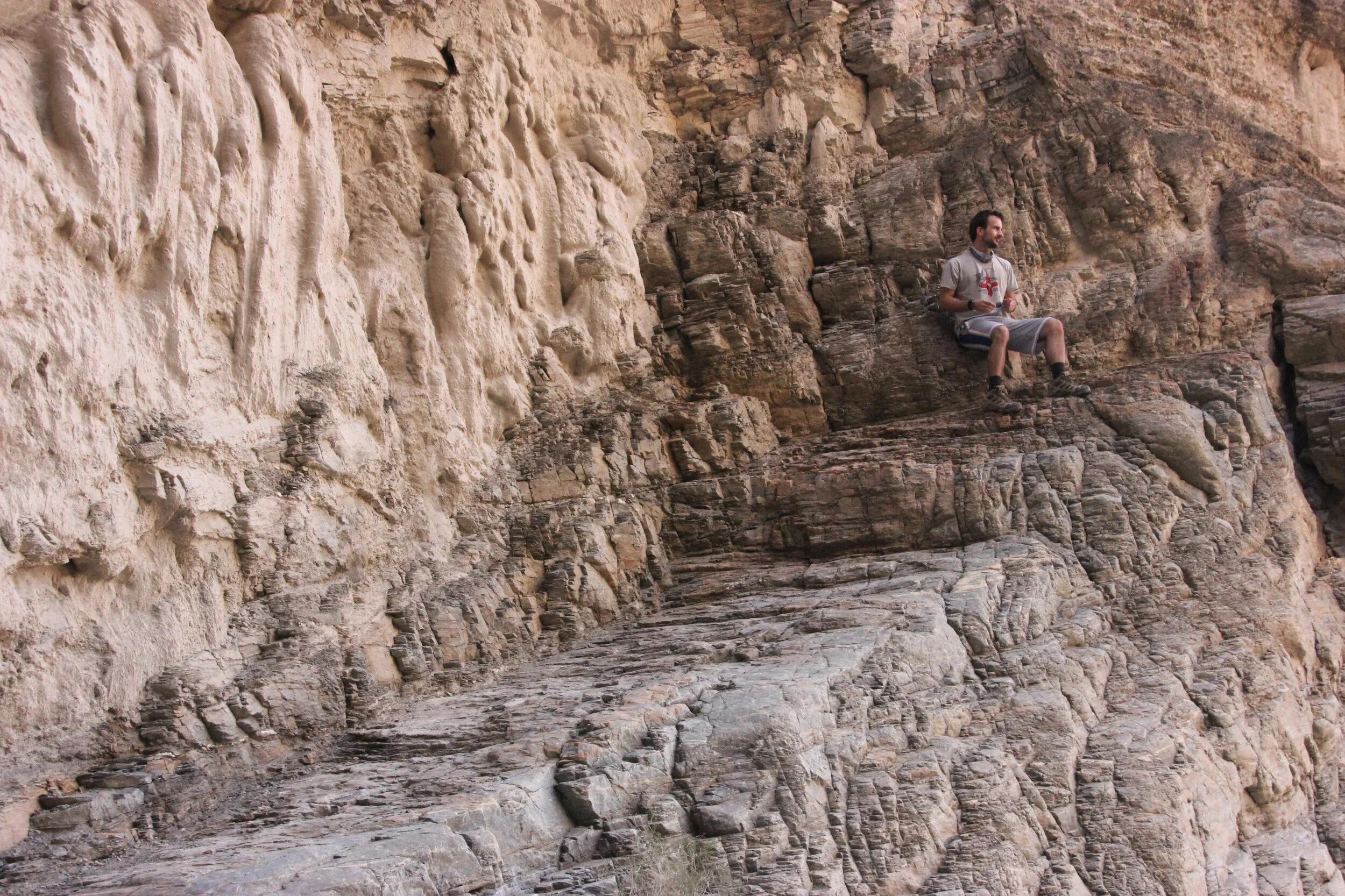One of the scientists smart enough to do their Ph.D. on a Caribbean island became a professor at the University of Illinois and was kind enough to show some students around his old stomping grounds. Professor Bruce Fouke designed an "intercultural study tour" to the island of Curaçao for the UIUC Campus Honors Program which would serve as an abbreviated version of his Biocomplexity course. The program runs infrequently, and I was lucky to go in 2014.
Geology
Professor Fouke posited the once-controversial and now widely accepted theory that the island of Curaçao was formed below sea level and later emerged as an island. We traveled to Christoffelpark to see the basalt and limestone features that were a geological smoking gun for Professor Fouke. On a clear day, you would be able to see Venezuela from the mountain, but it was too hazy for us. We also traveled to the wind-battered north side of the island which was host to dynamic features carved by the wind and waves into what was once a thriving reef.
Me (2nd from right) and 3 fellow students stand ready in our SCUBA gear before we get in the water
Marine Biology
The main purpose of the trip was to study the coral reef off the island's southern coast. Famously, the shelf break is only a short swim from shore, so those of us who were certified donned SCUBA gear and made several dives to survey reef health and diversity. Professor Fouke's Ph.D. was focused on coral, so there was particular emphasis on identifying which coral was healthy, bleached, diseased, and dead. Unfortunately, the reef was not thriving quite as much as it had been during his graduate work due to sand run-off from the fake beaches installed by resorts on the island.
Culture
Curaçao is a Dutch island, and it shows (Willemstad is very reminiscent of Amsterdam). Like much of the Caribbean, it was a slave island during the colonial era, and plantation ruins remain as reminders. Today, the island is trilingual with unique traditions. Unfortunately, though, some populations on the island are poverty-stricken, and even though Curaçao is not a particularly dangerous place, the wealthier regions have walled themselves off from the less fortunate.

